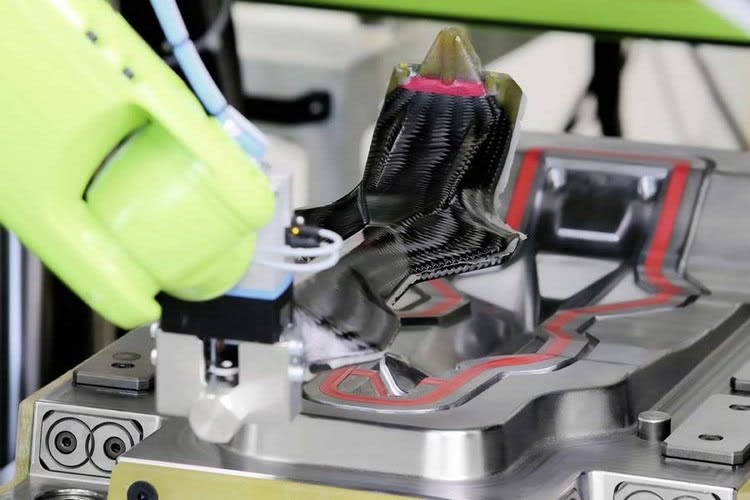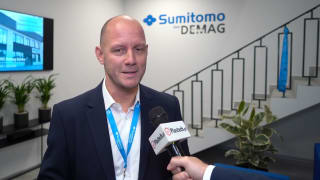Complex hollow parts in an automated HP-RTM process
Eight project partners - including KTM Technologies (Salzburg, Austria), Hennecke (St. Augustin, Germany) and ENGEL - have taken a critical development step towards the industrialisation of CAVUS technology by KTM, which enables even complex fibre composite hollow parts to be mass produced in an automated HP-RTM process. To demonstrate the new possibilities, the project partners developed a manufacturing cell to produce number plate holders for the KTM Super Duke 1290R.The starting point for production is a core of sand and water-soluble additives specially developed for the application; this is braided with carbon fibres to produce the preform. The fully automated process step enables complex geometries to be mapped very precisely with high material throughput. The preform already has the final contour of the finished part. For the HP-RTM process, the preform is then automatically inserted into the mould on the ENGEL elast machine. STREAMLINE technology from Hennecke enables precise injection of the raw material system in seconds: the whole curing process takes just 125 seconds. After the robot removes the part from the mould, the sand core is rinsed with water.
Up to now, the number plate holders have been solely made in an injection mould with a shot weight of 765 grams. In the composite design based on CAVUS technology, each number plate holder weighs just 265 grams, equivalent to a weight reduction of 62 percent. The hollow version also offers design advantages: the wires for the indicators and the number plate lighting are very well protected as they are connected inside the number plate holder.

CAVUS technology from KTM enables even complex hollow parts to be mass produced in an automated HP-RTM process.
Source: ENGEL



